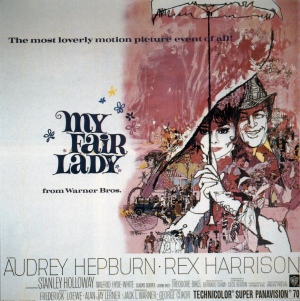 In his introduction to the Penguin edition of George Bernard Shaw’s “Pygmalion, Nicholas Grene calls the ending of the musical “a vulgar travesty of the play’s design.” Vulgar? Good heavens.
In his introduction to the Penguin edition of George Bernard Shaw’s “Pygmalion, Nicholas Grene calls the ending of the musical “a vulgar travesty of the play’s design.” Vulgar? Good heavens.
I appreciate what Grene is saying, that “the whole point of the play is the independent autonomy which Liza achieves, denying her status as Higgins’ male artifact,” though I disagree that that is Shaw’s whole point. He has a variety of them going on, which confuses things and prevents the play from being divided up into neat points. And there are certainly some issues I have with Shaw’s epilogue to “Pygmalion,” which he wrote later to detail once and for all what happens to Eliza and Henry Higgins so people would stop trying to put a romantic spin on his un-romantic play. However, after some reading of the play, I have concluded that the romantic spin is partially his own fault and that his epilogue is not very satisfactory at all and far too neat (but I want to write about that next week).
Perhaps I am just being defensive, because the truth is, I love the musical and I love the play. It is the musical that brought me to Shaw. I am obsessed with all things “Pygmalion” and I don’t think it’s right having one manifestation played against the next, as if they were in antagonism with each other. But in my mind, complaining that the musical is a travesty of the play is like saying the play is a travesty of Ovid’s Pygmalion account. Shaw has completely changed the meaning and ethos of Ovid’s passage in Metamorphoses. This is not a travesty. It’s genius.
But when people discuss the ending of the musical, they forget that there was a movie made in 1938, produced by Gabriel Pascal, adapted from his own work by George Bernard Shaw and starring Leslie Howard and Wendy Hiller. There had been two previous adaptations of “Pygmalion” into film, a Dutch and German version that Shaw loathed and thought were highly sentimentalized. It was generally thought that the play could never really be turned into a good movie. One, because it is a drawing room comedy of manners and all the action that we associate with the story – the ball, teaching Eliza how to speak and act – occurs offstage. Second, not only did the play not have a happy ending, it did not really have an ending at all. Imagine, for a moment, a movie that ends simply with Eliza walking out of the room. It would be a bit abrupt.
Shaw worked very closely with Pascal on the adaption of his play and ultimately was extremely pleased with it, despite the ending that Pascal managed to slip in without his knowledge. He also opposed the casting of Leslie Howard – he wanted Charles Laughton – because it slanted Higgins towards possible romance (something I don’t think people would have been as inclined to anticipate if Laughton had been in the film). But the film remains remarkably, delightfully literate for a movie and Shaw wrote to Pascal that it was “an all-British film, made by British methods without interference from American script writers, no spurious dialogue, but every word by its author, a revolution in the presentation of drama in the film.” He remained grateful to Pascal for taking many of his plays (including an excellent film adaption of “Major Barbara,” also starring Wendy Hiller) and faithfully doing them justice in a cinematic setting.
But about that ending. In the epilogue to the play, Shaw has Eliza marry Freddy, a man she neither loves nor respects. I suppose he married her off to be cranky and to try to settle her fate so no one else could, even in their imagination, marry her to Higgins. I don’t find it very convincing, however. It seems more likely that she would marry neither man.
But when Lerner and Loewe came together to make a musical, they could not for the life of them figure out how to turn the play into a musical. Oscar Hammerstein II declared that it was impossible. No romance, no chorus, a whole lot of talk. Finally, the solution hit them and they decided to base their musical, not on the play, but on the 1938 film adaption. And indeed, when you watch the 1938 adaption, it is remarkable how similar they are, in dialogue, in action, in events. One almost expects Leslie Howard to break into song. So really, the musical is a very good adaptation of a movie that Shaw approved of. Except the ending, of course.
But I have no real problem with the romantic ending, since it is perfectly internally consistent with the story that the movie and musical are telling. And neither musical nor movie is highly sentimental. In the musical, there are no love duets, the word love is never even mentioned, the characters don’t sit around contemplating their love, since they don’t even realize it. Higgins’ moment of revelation comes at the end, when he sings “I’ve Grown Accustomed to Her Face.”
 For Alan Jay Lerner (who wrote the book and lyrics of the musical), “My Fair Lady” involves a transformation not just for Eliza, but most fundamentally for Professor Higgins. Eliza’s character doesn’t fundamentally change, but his does. He’s been unconsciously softened by her. In Lerner’s words, “in a far less tangible way, Higgins goes through as much of a transformation as Eliza, the only difference being that Shaw would never allow the transformation to run its natural course.” Shaw’s Higgins remains fixed in character, Lerner and Loewe, and even Pascal, have their Higgins undergo a character arc.
For Alan Jay Lerner (who wrote the book and lyrics of the musical), “My Fair Lady” involves a transformation not just for Eliza, but most fundamentally for Professor Higgins. Eliza’s character doesn’t fundamentally change, but his does. He’s been unconsciously softened by her. In Lerner’s words, “in a far less tangible way, Higgins goes through as much of a transformation as Eliza, the only difference being that Shaw would never allow the transformation to run its natural course.” Shaw’s Higgins remains fixed in character, Lerner and Loewe, and even Pascal, have their Higgins undergo a character arc.
Another reason I think this works is because movies and musicals are fundamentally different from a play. A movie naturally tends towards romance – or at least strong emotional ties – because it is a more intimate art form than a play. And a musical must have some transcendent emotions to express musically, otherwise, why bother writing a musical? The romance is told, the characters change, through the music, not through words. In fact, because of the music of Frederick Loewe, Rex Harrison is able to play Henry Higgins as a far less romantic figure than Leslie Howard, because he has the songs to express his feelings. Howard must do it on his own and is therefore slightly softer than Harrison.
I do, however, have one complaint about the ending of the film version of My Fair Lady, with Rex Harrison and Audrey Hepburn. My complaint mostly rests in the casting of Hepburn. She’s really not bad in the role, but she lacks that fundamental spunk and strong individualism that is found in the play and 1938 movie Eliza. I don’t think this is the fault of the musical, but of Hepburn’s persona. When she goes back to Higgins, it looks like a defeat, desperation on her part to be with him, without his having to change. But I suspect that with Julie Andrews it was different. You can even hear the difference in her singing of “Just You Wait, Enry Iggins” and “Without You” in the Broadway and London cast recordings. Hepburn is overwhelmed by Harrison, but I would have believed Andrews when she said she can do without him. Her return would have signaled a change in their relationship. I don’t have that same sense with Audrey Hepburn.
Sources:
The Making of My Fair Lady – Keith Garebian
Introduction to the Penguin Edition of “Pygmalion” – Nicholas Grene
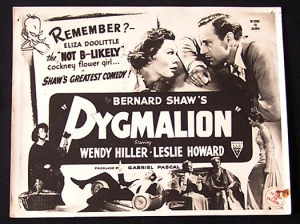
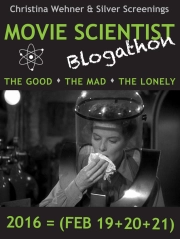
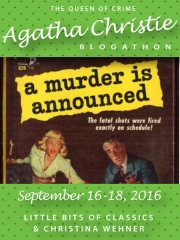


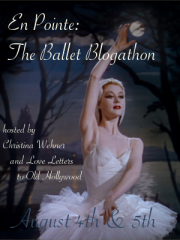

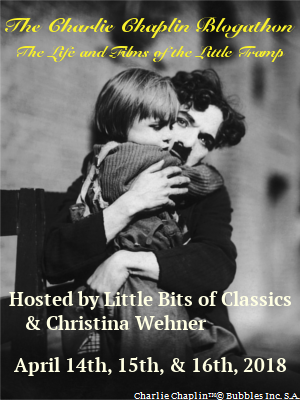
Eric Binford
July 24, 2015 at 1:24 pm
Great job, Christina! This is such a nice analysis. I’ve always had misgivings about the 1964 musical. First, I love the story and the music. But you are so right about Hepburn. She’s okay, but her star persona is a huge problem. I think Harrison makes the situation worse. He is a bit dull, boring, so he accentuates the feeling of defeat (“she’s going back to THAT man!”). My dream cast would have been Peter O’Toole as Higgins, Julie Andrews as Eliza, and James Cagney as Eliza’s father, directed by Vincente Minnelli (I was disappointed with Cukor’s lack of imagination).
There was a remake in the works — with Huge Jackman and Keira Knightley — but I’m not sure what happened to that production. I’m not opposed to that idea.
I have the same love-hate relationship with the 1967 musical Camelot — great music, but something is definitely off.
LikeLiked by 1 person
christinawehner
July 24, 2015 at 3:13 pm
Peter O’Toole – I never would have thought of him! He would have been good. Does he sing…though he could always talk/sing like Rex Harrison did. That would have been fun to see Cagney’s interpretation…though I don’t know about his accent.
Perhaps Rex Harrison was a bit tired of playing the role by the time the movie came along. I’d give almost anything to see him and Julie Andrews live on My Fair Lady’s opening night.
Ooh, Vincente Minnelli would have been lovely! There is something curiously flat about the film My Fair Lady. It never quite comes to life the way one feels that it should and the way the musical on stage reportedly did.
LikeLiked by 1 person
Eric Binford
July 24, 2015 at 3:52 pm
O’Toole does a really nice talk/sing job in Goodbye Mr. Chips (1969). I’m not sure that’s his voice in Man of La Mancha (1972) (another imperfect movie version of a wonderful Broadway musical). O’Toole did play Higgins in a TV version of Pygmalion and he was excellent (Margot Kidder played Eliza).
I’ve heard the soundtrack of the original My Fair Lady and Harrison seemed more lively and fun. Plus he had better rapport with Andrews. Yes, the movie version looks and feels a bit flat — like a PBS production.
LikeLiked by 1 person
christinawehner
July 24, 2015 at 6:19 pm
Oh, interesting! I’ll have to look for him in Pygmalion. I haven’t seen many Peter O’Toole films yet. How To Steal a Million with Audrey Hepburn was actually my first. Man of La Mancha would be fun to see, too. So far, I’ve only heard the original soundtrack, which I like.
LikeLiked by 1 person
Christiane Minnelli
August 25, 2016 at 3:00 pm
I agree! Vincente Minnelli would have been lovely! Especially with his moving camera , his colors and amazing ideas.
LikeLiked by 1 person
christinawehner
August 25, 2016 at 9:19 pm
Yes, that would have been marvelous! I can never see My Fair Lady without wishing it could have been better. 🙂
LikeLike
Theater Lover
July 25, 2015 at 9:42 am
Julie Andrews certainly is one of the great female voices of the 20th century, period. But when talking about Audrey Hepburn’s interpretation you gotta consider she is lip synching to Marni Nixon’s voice.
LikeLiked by 1 person
christinawehner
July 25, 2015 at 1:23 pm
I think you’re right; it can’t be easy to lip sync while acting. I remember reading in Marni Nixon’s biography how hard Deborah Kerr and she worked to make The King and I seamless. And Audrey Hepburn is really pretty good as Eliza Doolittle and surprisingly convincing as a cockney girl. I’m just not sure she had the inner strength to be able to stand up to Rex Harrison to make the ending completely satisfying. Hepburn always seemed more fragile to me than “a tower of strength” – as Higgins describes Eliza at the end.
LikeLike
Theater Lover
July 25, 2015 at 3:38 pm
Oddly enough, tonight’s “Prairie Home Companion” features Marni Nixon. She just sung “I Could Have Dubbed All Night” and now “Hello Young Lovers.” Previously she sung “Wouldn’t It Be Loverly” with Garrison Keillor. I’m listening to it in WNYC. You can listen to it here as well: http://prairiehome.org
LikeLiked by 1 person
christinawehner
July 25, 2015 at 5:00 pm
Thanks! What a coincidence. She’s an incredible singer! Have you read her biography; It was really fascinating.
LikeLike
Theater Lover
July 25, 2015 at 3:39 pm
P.S. The show is a repeat from 2002.
LikeLike
B Noir Detour
February 24, 2016 at 11:41 am
I so agree with your critique of Hepburn in the ending. And we all now Higgins and Pickering (aka Higgy and Piggy) are the real “couple” in the Cukor film! 😉
LikeLiked by 1 person
christinawehner
February 24, 2016 at 12:15 pm
“Higgy and Piggy”…I hadn’t heard that exact designation before. 🙂 The miscasting (I don’t know if it’s exactly miscasting…I can’t think of who else they should have cast if not Hepburn or Andrews) of Hepburn always makes me a bit sad, a bit “what if,” every time I see My Fair Lady, as much as I still enjoy it. I guess it brings the consoling eternal joy of second-guessing and wondering. 🙂
LikeLiked by 1 person
B Noir Detour
February 24, 2016 at 2:42 pm
Fans sometimes listen to Andrews while watching “Wouldn’t it be loverly?” and it’s she I think of as the better choice. Then there’s the stealing of Hepburn’s voice through the dubbing, unannounced to her during filming. What a muddle. It certainly shows Cukor as a studio man, happy to be working during a slow decade for him and given the Oscar when he should’ve earned it for Gaslight or Holiday or the sexist but delightful mess that is The Philadelphia Story.
LikeLiked by 1 person
christinawehner
February 24, 2016 at 3:25 pm
It’s so true…people rarely seem to receive the Oscar when they should (if at all!) – I’d forgotten Cukor did Holiday.
Cukor seems like one of the few directors who was successful in the ’30s and ’40s and still be able to direct notable pictures in the ’60s. Most seem to have faded (or died) by then. I think of Hitchcock, Wyler, Cukor…who else was still directing?
That an intriguing idea – to listen to Andrews while watching. It was sad how everything went down with Audrey Hepburn’s singing. I understand why they dubbed her voice, but it must have been difficult for her the way they handled it. That’s partly why I’m such a big believer in casting people who can sing in musicals. It seems like the best way all around (unless you’re like Deborah Kerr, who honestly didn’t seem to mind having her voice dubbed – though they could have simply cast Maureen O’Hara in The King and I, since she could sing well).
LikeLiked by 2 people
B Noir Detour
February 24, 2016 at 3:38 pm
I agree entirely, but Hollywood has always been a space of stars over skill. A familiar celebrity will bring in the audience in ways a talented but lesser-known or less glamorous (young, blonde, thin, whatever) actress will not.
LikeLiked by 1 person
Vienna
May 7, 2016 at 3:25 pm
Must agree with you about casting actors who can sing , and that Maureen O’Hara would have fulfilled all the requirements for The King and I ( though Deborah was perfect). Maureen never got much chance in her films to show her fine singing voice. She did do a Broadway show but can’t recall the title.
Shame on the studio not taking a chance with Julie Andrews as Eliza. She created the role after all , and she became a big film star very soon after My Fair Lady.
What a fantastic score Lerner and Loewe gave us.
I adore Wendy Hiller in the original Pygmalion. A shame Hollywood never tempted Wendy.
And of course Leslie Howard was a superb Higgins.
Angela Lansbury should have been allowed to do Mame, another instance of someone creating a role and not being able to preserve the performance forever on film.
I saw Angela on stage in London in Gypsy. Wow. Unforgettable!!!!
LikeLiked by 1 person
christinawehner
May 7, 2016 at 10:49 pm
Oh wow, that does sound unforgettable! It must be so frustrating for actors to create a role on stage and not be able to bring it to film.
I so agree about Wendy Hiller! I respect that she preferred working on stage, but it’s hard not to repine. But at least we have a few of her films! Pygmalion and I Know Where I’m Going are my favorites, but she’s marvelous in everything.
I kind of wish we could have had two versions of The King and I, just so we could see Maureen O’Hara’s take on the role, too. 🙂
LikeLike
Medievalmaven
October 19, 2016 at 2:57 pm
I have to disagree vehemently! I HATE the ending. Eliza deserves so much better than Higgins. I’ve hated the ending since I was 7! Higgins treats Eliza so shamefully and even his “redemptive” song calls her “baggage” and a “hellcat.” Yes, what sweet words. Plus, Higgins is so old! Ugh. Whereas Freddie (where do we get the idea that he is weak? Freddie is one of my favorites. I think he and Eliza would be great together) is young, respects Eliza, and actually GOES to apologize for being rude. It’s the same reason I don’t like “Oklahoma” and “Carousel” or any play where the man is abusive, controlling, and treats the heroine horribly (in Oklahoma they both do it), but they’re destined to be together! Gross.
LikeLiked by 1 person
christinawehner
October 19, 2016 at 4:12 pm
I totally get what you mean. I have a cousin who feels exactly as you do about My Fair Lady. It drives her up the wall every time she sees it. I haven’t seen Carousel, but Oklahoma was frustrating. My mom used to point out that this was a demonstration of how NOT to behave. 🙂
I think the romance works better in the 1938 non-musical version Pygmalion, where Leslie Howard is humbled a bit more (though still pretty arrogant), but Wendy Hiller is such a strong actress that they seem more suited…and closer in age. Rex Harrison and Audrey Hepburn are an awfully implausible couple. It’s very hard to believe and he never does seem to soften enough.
LikeLike
Katrina Morrison
October 28, 2016 at 1:21 pm
I enjoyed reading the historical background about Shaw you provided Christina. You are right when you say Eliza’s declaration of independence was not convincing enough for the audience to buy it or cheer her on. It may have been better with Andrews. I think it was because Eliza’s character was not built up enough to convince us she didn’t need Higgins. Instead, they convinced us she might have fell in love with him. She stopped working for herself and started working on trying to convince Higgins she was good enough, in his eyes.
I always loved this movie and the 1938 version. I never seen the stage performances mentioned here; but, I have heard of them. I still enjoy this musical and the lovely costumes. Although Hepburn’s presence was too regal to convincingly play a “gutter snipe,” she was perfectly beautiful and charming to watch….
LikeLiked by 1 person
christinawehner
October 28, 2016 at 9:50 pm
Yes, I agree – it is still a pleasure to watch My Fair Lady! And the 1938 film is so fantastic, isn’t it! It’s hard to get too much Pygmalion/My Fair Lady…even with the ending.
It’s so true…it does feel a bit tacked on how Audrey Hepburn’s Eliza returns to Higgins. I think you’re right – we somehow needed more time or more something to convince us that she really can stand on her own. I wonder how Julie Andrews would have done, because I don’t think she would have had any more time on stage than Hepburn does in the film – would her different personality have been enough? I always wished I could have seen Julie Andrews as Eliza on stage, though!
LikeLiked by 1 person
Katrina Morrison
October 28, 2016 at 9:55 pm
I fell in love with Andrews when I seen her in Victor/Victoria. She can do it all. So, of course, you are right. Her Eliza would have been magnificent, without the extra film time to convince us of her strength…😊
LikeLiked by 1 person
christinawehner
October 28, 2016 at 10:13 pm
I’ve not seen Victor/Victoria yet, though I’ve heard good things about it! She is so amazing!
LikeLike
stephencwinter
April 11, 2017 at 12:17 am
It was My Fair Lady that came to mind when I read your excellent piece on The Seventh Veil. Surely in both stories a woman walks back into an abusive relationship? Both are an expression of powerlessness. At least in Shaw’s play Eliza makes some kind of a choice although I agree with you entirely that it is rather sad. I have no doubt that she has the measure of Freddie and will be the power in that marriage. She seems to be willing to settle for that.
LikeLiked by 1 person
christinawehner
April 11, 2017 at 10:00 am
Very true…you remind what a dark theme Shaw was actually writing about, even though it was such a delightful play…and musical. It reminds me that Shaw did intend to attack the class system and the powerlessness of her situation, though she does work to rise above it.
LikeLiked by 1 person
stephencwinter
April 11, 2017 at 1:14 pm
And are Henry Higgins and James Mason’s, Nicholas, basically the same character? Mason, by the way, is among my favourite actors of all time. By comparison, I think that Gielgud and Olivier can come across as dated. Mason always seems absolutely contemporary.
LikeLiked by 1 person
christinawehner
April 11, 2017 at 1:27 pm
That’s a good point – I hadn’t thought of that about Mason, but it seems absolutely true. I’ve been watching a lot of his films lately, especially ones he made while still working in England. I really was struck with his performance in Odd Man Out! He must have had one of the loveliest speaking voices of all time.
Henry Higgins and Mason’s Nicholas are rather similar in the way they “create” or mold the character and career of the leading lady…and feel entitled to control her, though I think Nicholas is more sadistic than Higgins is. I always thought Higgins could be a bit…I guess childish…like he never full matured into a man. Does that seem true?
LikeLike
nuwansenfilmsen
May 2, 2017 at 7:38 am
Interesting analysis!! I didn’t know that the musicals ending was called vulgar!! That’s a bit too much. Harrison isn’t bad guy, even before he is softened up.
I disagree that Audrey Hepburn coming back looked like defeat. It didn’t. She left because she was being treated like a door mat. But she comes back, because he’s not that kind of man anymore (even though he jokingly asks for the slippers).
Julie Andrews would have done something different, and she’d be great. But Hepburn stood on her own.
I love this musical. Not only do I love it. I think, it is THE best musical ever made. And until the fact she comes back to the end, there is no romance in the movie. I think it’s a very feminist film, made during the start of feminism, and set a 100 years ago.
This was a very interesting read though.
LikeLiked by 2 people
christinawehner
May 2, 2017 at 10:55 am
Thanks so much for your passionate defense of this wonderful film! I agree – calling the ending “vulgar” is a massive disservice to the musical. You make a great point about Higgins’ softening up – I once read an argument that his closing lines about getting his slippers was kind of a face-saving comment, because he knows how desperately glad he is that she came back, which makes him the more vulnerable one. I see what you mean about it being feminist. It makes me wonder if perhaps the very fact that the musical has engendered so much discussion about feminism proves your point.
LikeLiked by 2 people
rcocean
June 7, 2017 at 6:01 pm
Great column. “My Fair Lady” is one of my favorite musicals – and I thought everyone was perfectly cast. My only complaint is the direction – which seems a little too stately. As for the ending, I’m amazed at how much people read into it. Its quite ambiguous. All we know is that Higgens has softened and “grown accustomed to her face” and Liza comes back. But come back to be what? Friends? his Wife? Something else? Everyone can imagine their own resolution. Which is why I like it.
LikeLiked by 1 person
christinawehner
June 7, 2017 at 8:28 pm
That’s a good point. The music seems very romantic, but it’s true that no one knows how it will actually end. It seems like they would certainly have a lot more fights in the future!
LikeLike
ysabeaublue
June 13, 2017 at 2:26 pm
The ending of My Fair Lady works better in the stage version, but I don’t think it’s necessarily Hepburn’s fault. For whatever reason the director or whoever removed some of the subtleties in the Eliza/Higgins interactions for the film, and the stage ending is also less ambiguous in what kind of reconciliation happens between the two. I had the pleasure to see the stage version this May at the Lyric Opera of Chicago, and after reading the original script plus reviews from the 1950s, it’s much clearer in the stage version that that there will be changes between the two and Eliza is a “match” to Higgins, not just a doormat who returns.
A lot of the tension between the two (as well as the emotional range of Higgins) is lost in the film. I’m unsure if it’s because Harrison/Hepburn didn’t have chemistry, or because it was directed that way (I suspect it’s more the latter than the former, though I do think the chemistry could’ve been better), or because Harrison was older and the visible age discrepancy of film made a more romantic spin look funny, but it’s just not the same.
Yes, Hepburn’s Eliza is missing the spark that the stage version has, but the film writes and/or directs her character that way. Hepburn wasn’t given the same depth to work with that’s in the stage version, not to mention her voice is dubbed, and I think she does the best she can (you can even see flashes of the Eliza that could’ve been). Even Harrison’s film Higgins is a diminished version of the stage one, and while Harrison is an excellent actor, he actually isn’t that expressive in the film compared to stage Higgins, who is funnier, meanier, sweeter, and more awkward when he starts to realize – or not realize – he likes Eliza.
As an aside, Richard E Grant played Higgins in the stage version I saw, and he was excellent, reminded me of stage Harrison in some respects more than film Harrison did – if that makes sense, lol.
LikeLiked by 2 people
christinawehner
June 14, 2017 at 11:11 am
That must have been so lovely to see live! I’ve always wanted to be able to see the musical…and Shaw’s play. It’s interesting that they took out some things from the stage musical for the film.
I have read it argued that Rex Harrison’s renditions of the songs gets worse with each recording (from the Broadway soundtrack to the London to the film’s); perhaps he was experiencing fatigue with the role. That must have been a frustrating experience for Audrey Hepburn, though, if they changed her character and made her less feisty.
LikeLike
dbmoviesblog
August 4, 2017 at 8:16 am
An interesting analysis. I do agree with you that Andrews would have provided for a more forceful character and the ending can be criticised because of this loss of meaning and lack of change on Higgins part. But, I read the play and I came to the conclusion that Hepburn is exactly what is needed here. She brings that romance, lightness and innocence to the film and because she seems overwhelmed by Higgins at the beginning, it is interesting to see her develop into a more independent and cultured personalty by the end. Andrews may have been too much coming too soon in the film.
LikeLiked by 1 person
christinawehner
August 4, 2017 at 10:14 am
That’s a good interesting point about how Audrey Hepburn’s performance allows us to see her character arch. I thought Eliza seemed more fiery in the play, like the entire story was a clash of two strong wills, with Higgins maintaining the upper hand until she realizes she doesn’t need to be in awe of him anymore. It’s too bad we couldn’t have had two versions, one with Hepburn and one with Andrews. It would have been fun to compare…and since it’s such a lovely musical it seems like it would be hard to have too many versions. 🙂
LikeLiked by 1 person
linnetmoss
August 26, 2017 at 4:27 am
In the ending of the play, Higgins seems overly confident that Eliza will come back, when (according to Shaw) she won’t. In the ending of the musical (as written by Lerner and Loewe), she does come back. Higgins has been humbled and they reprise some lines from their relationship (“She’s so deliciously low” “I washed my face and hands before I come”). Then Higgins “softly” speaks the line about the slippers, and Eliza has tears in her eyes because she “understands.” Both know that his pretense of dominance is a sham because he is at her mercy, but she allows him to continue it, to save his masculine ego. I think that the musical ending is very much of the time it was written, the mid 1950s. The movie version of the musical pushed it even further so that Eliza was humbled by her love for Higgins–striking a disturbing note for modern viewers. Interesting how a mid-20th century work aimed at a popular audience was so much less feminist than a 1913 play. It is a great thing to see the musical staged live, and how modern directors deal with the ending. I saw one in which they showed the two leads as equals at the end, and the slippers line was clearly just a joke.
I am most fond of the 1938 film, which has such wonderful chemistry between the leads. I feel that the play was not about physical, romantic love, something which Higgins made clear he was not interested in. It was about an even deeper connection which transcends age and social class.
Thanks for this analysis–very enjoyable!
LikeLiked by 1 person
christinawehner
August 28, 2017 at 9:06 am
That is very interesting how directors handle the ending today! And a good point about how Eliza seems humbled in the ’64 version. It does always get to me, that ending. I enjoy it right up until that point.
I agree, the chemistry is really great in the ’38 version! It seems a shame that it is not better known. Shaw was purportedly quite proud of the film version (despite the ending) and always displayed the Academy Award that he won.
Perhaps that is why people have had such a hard time accepting the ending of Shaw’s original play. Intellectual companionship or companionship of the two souls is far harder to depict than romantic love…and we audiences are almost trained to look for romance. He was really going against the established mode, which seems rather cheeky and brilliant of him.
LikeLiked by 1 person
linnetmoss
August 28, 2017 at 1:13 pm
I agree. It’s difficult to accept that it is not romantic on Higgins’ part, although I think that the question may depend on one’s definition of “romance.” There is no question that he loved her, but in an unconventional way. Very Shaw!
LikeLiked by 1 person
christinawehner
August 31, 2017 at 8:51 am
True! I think I read that Shaw carried on a variety of affairs, including some via correspondence. Maybe he identified with a romance that was more intellectual or a romance of the mind and soul and not necessarily physical as we think of romance.
LikeLiked by 1 person
muriel
February 22, 2019 at 10:27 am
I would have loved to see Laughton in Pygmalion!
LikeLiked by 1 person
christinawehner
March 27, 2019 at 2:20 pm
That would have been quite something! I sometimes wish one could see the same movie, but with different casts in it…the same way one can see the same play throughout one’s life, but with different casts.
LikeLike